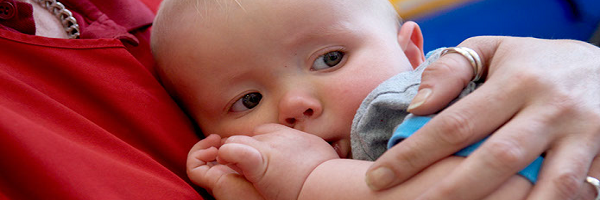FAQs for Service Evaluation Sites

FAQs for Service Evaluation Sites Only
The ‘Parents Under Pressure™’ Programme (PuP) is a pioneering new service that is being funded by the NSPCC for three years in order to evaluate whether it improves outcomes for alcohol and substance misusing families with infants under the age of two and a half, in the UK. This is an additional parenting support service designed to provide input alongside standard drug and alcohol treatment.
The following questions/answers will help referrers to understand what is involved:
What is the Parents Under Pressure Programme?
Which families are suitable for the service?
How are families invited to use the service?
How can professionals refer a family to the service?
What will happen after that?
The service provision
The research team involvment
What if I want more information?
What is the Parents Under Pressure™ Programme?
The PuP programme is aimed at helping alcohol and substance dependent families with children less than two and a half years of age, to look after their children well and to promote their own emotional wellbeing. It is delivered on a one-to-one basis, in the family's home, over 20 weeks.
The therapist manual provides the theoretical background and structure for the PuP programme and a parent’s workbook is given to the family, and forms the basis of the treatment.
The parent workbook contains many different exercises that help the parent work towards their own parenting goals. It consists of modules that are aimed at providing families with the skills needed to manage substance use problems and difficult emotions when they are under pressure, helping them to provide ‘mindful’ parenting, improving families’ life skills, and extending their social support networks.
An evaluation of the PuP programme in Australia found significant reductions in child abuse potential, rigid parenting attitudes, and child behaviour problems among methadone maintained parents of children aged 2-8 (Dawe and Harnett 2007). The programme has since been developed for delivery to alcohol/substance misusing parents with babies under the age of two and a half years old in the UK.
Which families are suitable for the service?
The service is open to all families (i.e. primary care givers who have problems with the use of drugs and/or alcohol, who have a child under the age of two and a half and who would like some support with their role as parents.
How are families invited to use the service?
Families can be invited to take part in the programme by all health and children’s social services that have contact with alcohol and substance dependent families. Families may also self-refer.
How can professionals refer a family to the service?
Contact your local NSPCC service centre to discuss whether the family meets the suitability criteria. [List service centre contact details] A PuP practitioner will be allocated if appropriate, capacity permitting.
What will happen after that?
The PuP practitioners will make contact with the referred family to discuss the service further. Families who would like to receive the service will be registered in the NSPCC’s database. The practitioner will administer a questionnaire, they will ask the participants questions about the following aspects of their lives: overall wellbeing; depression, anxiety and stress; daily hassles; life events; and social support. The practitioner will then record this information on the PuP database which is a purpose built database developed and owned by the PuP programme™ team in Australia and then the service will begin. Following completion of the service, the PuP questionnaire will be re-administered and the data again entered on the PuP database. This information will enable us to establish if the service is making a difference to the wellbeing of clients.
The service provision
PuP service availability will depend on the capacity of the practitioners. Each practitioner can provide the service to a caseload of seven families at any one time. If there is no capacity, a service will not be provided until there is capacity within the service centre to start undertaking further families.
The research team involvement
A research team at the University of Warwick has been commissioned by the NSPCC to conduct statistical analysis on the data that is collected across all eleven participating sites. The following describes how the research data will be collected and handled:
A consent form (attached) will be given to all families receiving the Parents Under Pressure™ service to request their permission for their anonymised data to be passed to the University of Warwick for analysis. The data of non-consenting families will not be passed on to Warwick for analysis.
The data of consenting families will be made available to the research team by providing a password to the on-line dataset that will contain the anonymised pre and post data for the above questionnaires for consenting families only. A unique ID number will be used to enable the researchers to match the data provided before the delivery of the service with the data provided following completion of the service.
What if I want more information?
If after reading this you would like further information about the research please do not hesitate to contact your local NSPCC service centre or the research team at the following address:
Jane Barlow,
Warwick Medical School,
Gibbet Hill Road,
Coventry,
CV4 7AL
Tel: 02476 574884
Email: jane.barlow@warwick.ac.uk.
Sukhdev Sembi,
Warwick Medical School
Tel: 02476 150508
Mobile: 07824 541002
Email: Sukhdev.sembi@warwick.ac.uk
Contact |
Families |
PuP Practitioners |
Service Evaluation SitesCoventry, Croydon, Ipswich, Swindon, York Information for Referring Agents |
Randomised Control Trial (RCT)Bristol, Glasgow, Liverpool, Nottingham, Stoke, Warrington |

